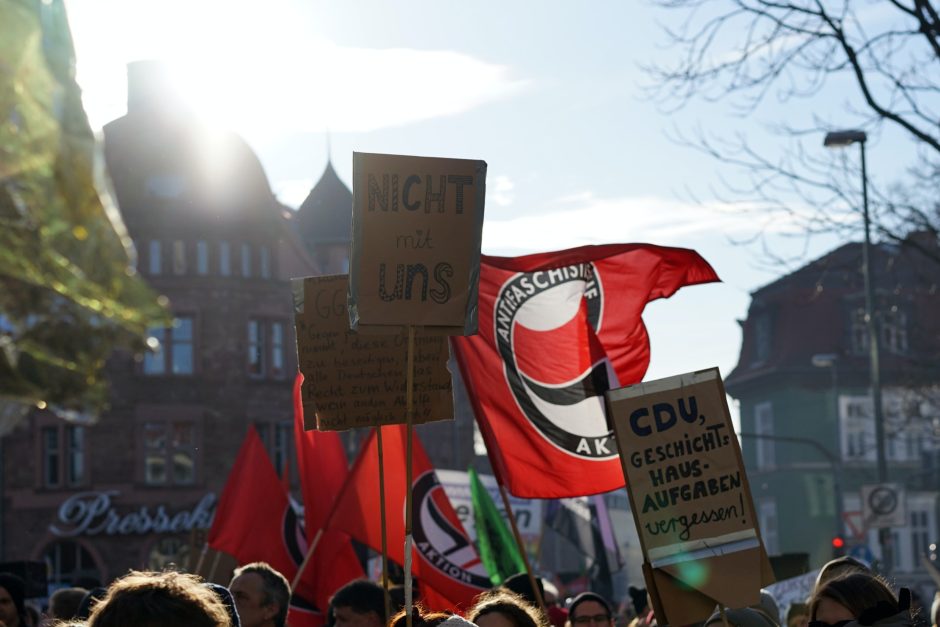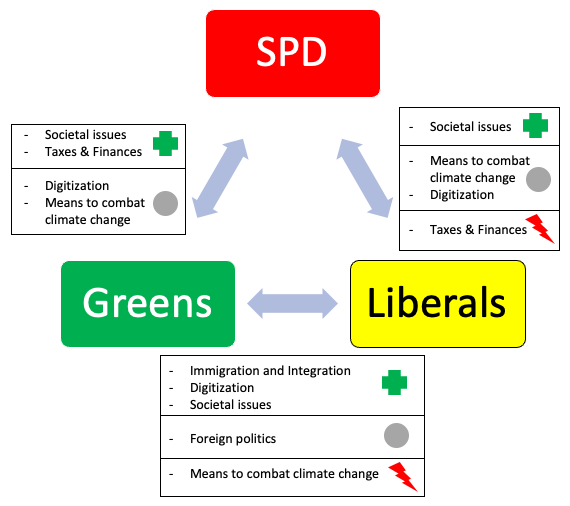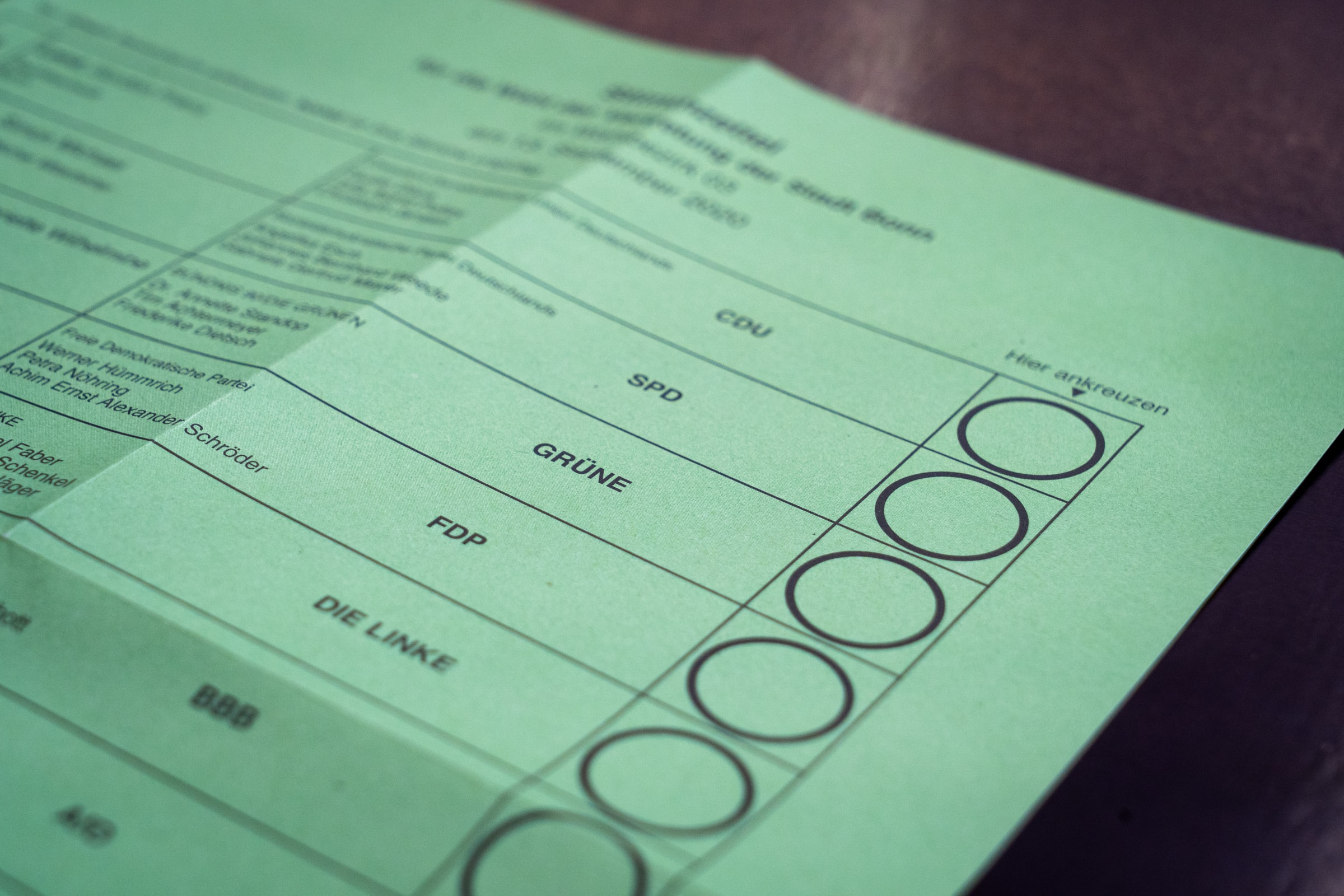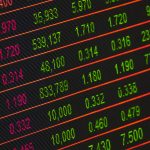The German people have voted once again in the parliamentary elections. Once every four years, Germans go to polls for the most prominent election of the country. This election stood out from others in the recent past as the officeholder did not run for re-election. Who will govern Germany? In what direction is the country headed? A brief look into the past and the coming years provide an idea.
Angela Merkel will be the first chancellor in the history of the Federal Republic of Germany to retire at her own will. After 16 years in office, leading arguably the most successful government in the history of the Federal Republic of Germany, she has decided to step down.
Merkel’s party, the Christian Democratic Union (CDU), with their new leader Armin Laschet at the forefront, achieved the worst-ever result in the party’s history in the elections from September 26th of 2021. Would the CDU have performed better with Merkel running again? The answer is speculative but would likely be yes. Incumbents usually enjoy the advantage of an awareness bonus, because they are more known throughout the country than their competitors. On the other hand, opinion polls demonstrated Armin Laschet’s low popularity and probably any other candidate would have secured a better result. After the election, 86% of former CDU voters stated in a survey that they would have preferred another candidate. The list of mishaps throughout Laschet’s campaign is long. For one, there was a camera catching him laughing during a speech of the German president to the affected people of the flood disaster in the western part of the country. To symbolically round up his unfortunate campaign, Laschet was photographed putting his ballot paper folded to the outside into the ballot box. The photo revealed the obvious choice he made in the election. However, Germany’s elections are secret, and therefore ballots must – by law – be folded to the inside. The CDU has, in consequence, announced a leadership personnel change. Laschet accordingly stated that he would step down as the party’s leader if required.

Disaster averted
Things could have been even worse for the middle-right conservative party. Weeks before the election, opinion polls showed alarmingly low numbers for the party in power for 16 years. Different measures undertaken by the party leadership, such as installing a “future team” consisting of prominent CDU supporters and the spreading of narratives, averted an even worse disaster. A well-executed and coherent news framing campaign of an imminent threat of a “shift to the left,” if the social democrats and other parties left of the center would form the government, fueled fears among the core voters of the CDU who were considering voting for another party. Their core voters may fear socialism, potentially from bad memories of the socialist German Democratic Republic. It is interesting to observe that this narrative worked well for the conservative CDU because, realistically, there was no threat of an actual socialist government coming to power. The effectiveness of this campaign becomes clear glancing over an opinion poll carried out on election day. 71% of CDU voters stated that averting a “swing to the left” in the form of a left alliance government was their main reason to vote for the party. These last-minute efforts resulted in securing second place in the election if the votes of the CDU and their sister party CSU were combined.
However, the election’s clear winner is the Social Democratic Party (SPD) and their chancellor candidate Olaf Scholz. Scholz was the vice-chancellor in the previous, Merkel-led government. In contrast to Laschet, Scholz did not make many mistakes throughout his campaign. Quite on the contrary, he and his team communicated precisely and proactively if potentially threatening stories surfaced. The former vice-chancellor was, for some, even the sole reason they voted for the social democrats. Scholz will likely lead Germany as the next chancellor. The most exciting question on election evening was with which parties the SPD will form a government. That is because the social democrats are far away from a single majority. The kingmakers in the coalition formation process will be the parties in third and fourth place: the Greens and the Liberals.
Green means go, yellow means caution
Both the Greens and the Liberals know that they will likely be the ones to help the next chancellor to power, which is why they, as junior partners, were talking to each other first before starting exploratory talks with the SPD or CDU/CSU. Various ideological streams within the most populated country of the European Union have helped the green party and the liberal party to good results. 82% of the green voters said that their primary motive for their electoral choice was the climate and the environment.
Three possible calculative coalitions would provide the needed majority: firstly, the “traffic light” coalition, following the party colors of SPD (red), Greens (green, obviously) and Liberals (yellow), secondly the “Jamaica”-coalition between CDU/CSU (black), Greens and Liberals, and finally the alliance of the two previous governments: SPD and CDU/CSU. The order of appearance corresponds with the assumed likeliness in Germany of the respective coalition to take office. The collaboration between SPD and CDU/CSU as governing parties is mathematically possible, however unlikely to happen. The former alliance between social democrats and Christian democrats resulted from a lack of alternatives. It was more a partnership of purpose than of interest. In the history of Germany between 1950 and 2005, it was – with one small exception – always either the SPD or CDU in power. Traditionally, they are somewhat opposing parties rather than partners. Moreover, in the past, the CDU – when in government – would always provide the chancellor. That was because they were always the senior partners in coalitions, with a smaller party helping them to power. This time, the SPD received more votes. It seems unlikely that the CDU would suffer the ignominy of entering a government with the SPD in which the chancellor is not one of their own.
The Greens are historically the natural coalition partners for the social democrats. Both parties share a broad set of values and have governed in cooperation in the past. That is why the Greens are optimistic and push the gas for an SPD-led government with them as the second largest and the Liberals as the third-largest party. Challenging for the traffic light coalition talks will be the integration of the Liberal party, which is not as enthusiastic about the partnership. Answers to questions regarding finances, taxes, and the means to combat climate change differ notably between the three. Adding to that, the Liberals repeatedly stated that the CDU, and thus a Jamaica coalition, is closest to their ideas and principles and would therefore be their preferred solution. Nonetheless, there is common ground for the traffic light coalition. Societal issues, such as the decriminalization of cannabis, lowering the minimum age required to vote to 16, and contributing to a tolerant and open society, are contents that the three parties can agree on from the start.

Directional decision for Germany’s far-right
In this election, a party deemed irrelevant in terms of exploratory and coalition talks was the far-right Alternative für Deutschland (AfD). While all other current parties from the parliament have considered cooperating and forming a coalition for the next government, no party considered working with the AfD. Adding to that, they lost a large number of voters compared to the elections from 2017. The AfD struggled to find a proper populist topic this time after they profited a lot from an anti-refugee campaign in 2017, which at that time was on many more people’s minds. Moreover, there is a dispute inside the party about which path to pursue in the future. The party’s co-leader Jörg Meuthen acknowledged and correctly analyzed the recent struggles. Resulting from bleak outlooks (losing voters; deemed not fit to govern) for his party, Meuthen lobbies for less extreme positions to eventually make the AfD a “real alternative” for a conservative alliance in cooperation with the CDU. The other co-leader, Tino Chrupalla, and vice-leader, Alice Weidel, oppose this view and do not support a changing course for the party.
Meuthen recently announced that he would not run in the internal re-election for the party leadership. The AfD will lose a supporter for a moderate party orientation. His successor will co-determine the AfD’s future course.
Long wait at the traffic light?
Election observers perceive a desire towards “something new.” After election polling shows that 51% of the voters perceive the traffic light coalition as the alliance that promises a “fresh start” compared to only 18% saying the same thing about a coalition between CDU, Greens, and Liberals. What already seems clear is that Germany’s position in international organizations will not change significantly. Parties involved in the talks are committed to highlighting the importance of global alliances, such as NATO and the EU. Germans appear to be cautiously optimistic about their most likely soon-to-be leaders. SPD, Greens, and Liberals have understood the voters’ wish for a coalition between them. Talks could, however, last quite some time. Considering the many differences, figuring out a compromise that all parties can agree on will be a lengthy process. Moreover, a Jamaica coalition is not off the table until the very last minute if the traffic light coalition talks turn into a traffic jam. During this time, the former Merkel-led government will stay in office. Will the chancellor of 16 years have to address the nation one last time in the traditional New Year’s speech in January of 2022? Not if the wish of the Greens co leader Robert Habeck comes true. When asked when the new government should take office, he replied with one word: “Christmas.”
Top image by Mika Baumeister on Unsplash





